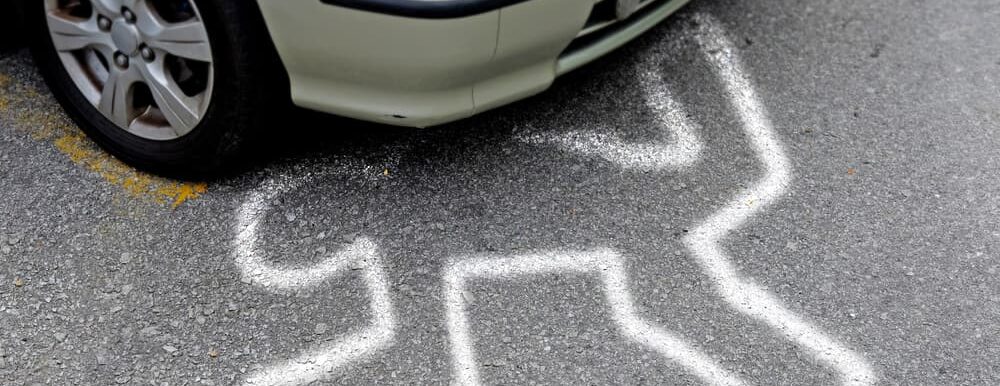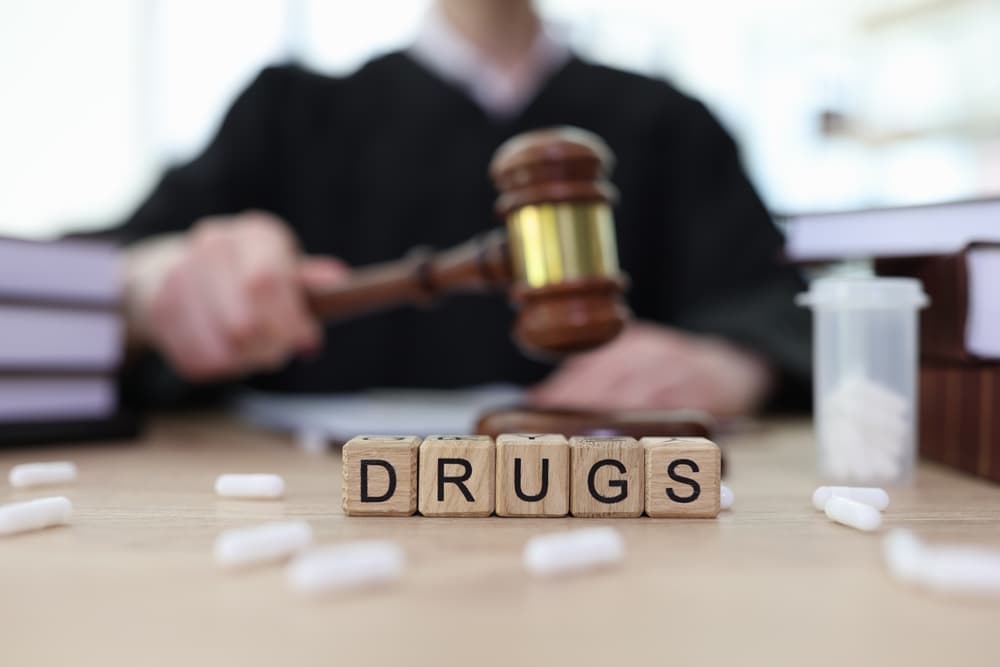A vehicular manslaughter charge in Los Angeles, CA, arises when a driver causes another person’s death through negligent or reckless driving. This can involve actions like speeding, DUI, texting while driving, or other violations of traffic laws. Depending on the circumstances, the charge may be filed as a misdemeanor or felony, carrying severe penalties such as jail time, license suspension, and a permanent criminal record.
The experienced criminal defense attorneys at Chudnovsky Law understand the serious consequences of these charges and provide skilled legal representation at every stage. From investigating the accident scene and challenging the prosecution’s evidence to negotiating with the District Attorney or defending you at trial, they handle every aspect of your case. Their comprehensive approach ensures that your rights are protected and that you receive the strongest possible defense throughout the legal process.





Why Select Us
A vehicular manslaughter charge in Los Angeles, CA, may be filed as a misdemeanor or felony and can carry serious penalties upon conviction, including jail time, license suspension, and a permanent criminal record.

At Chudnovsky Law, our legal team is comprised of former prosecutors and seasoned criminal defense attorneys with decades of experience. Collectively, we have handled more than 9,000 criminal jury trials and cases, giving us the insight and skill needed to defend even the most complex charges. Recognized among the Top 100 Trial Lawyers by the National Trial Lawyers Association, we fight aggressively to protect your rights. From start to finish, we handle every step of your case with the dedication and experience you deserve.
You can see our most recent client reviews and case testimonials on this site. Our office is conveniently located at 1933 S Broadway #1100, Los Angeles, CA 90007.
What are the Elements of a Vehicular Manslaughter Charge in Los Angeles, CA?
In Los Angeles, vehicular manslaughter is a serious criminal charge that applies when a person causes the death of another while driving a vehicle, often due to negligent or reckless behavior. To convict someone of this offense, a prosecutor must prove specific legal elements beyond a reasonable doubt.
- First, the prosecutor must show that the defendant was driving a vehicle. This includes any motorized vehicle such as a car, truck, or motorcycle.
- Second, they must prove that the defendant committed an unlawful act while driving. This act must not amount to a felony. For example, it could be a misdemeanor or a lawful act performed in an unlawful manner. Common examples include speeding, running a red light, texting while driving, or driving under the influence of drugs or alcohol, if it is charged as a misdemeanor. The key is that the act must be dangerous to human life under the circumstances.
- Third, the prosecution must show that the defendant acted with either gross negligence or ordinary negligence. Gross negligence involves more than just a mistake or lack of care—it means the driver acted in a reckless way that created a high risk of death or serious injury. Ordinary negligence means the driver failed to use the reasonable care that a typical person would use in the same situation.
- Finally, the prosecutor must prove that the driver’s negligent or unlawful act directly caused the death of another person. There must be a clear link between what the driver did and the fatal outcome. If the death was caused by something completely unrelated, then the charge may not apply.
Vehicular manslaughter can be charged as a misdemeanor or felony, depending on the facts of the case and the level of negligence involved.
Potential Penalties for a Los Angeles, CA Vehicular Manslaughter Conviction
In Los Angeles, California, a conviction for vehicular manslaughter can lead to serious criminal penalties, depending on the specific facts of the case and how the offense is charged. The law separates vehicular manslaughter into different levels based on the driver’s behavior and state of mind at the time of the incident.
If the driver acted with ordinary negligence while committing a traffic violation or a lawful act in an unsafe way, they may be charged with misdemeanor vehicular manslaughter. A conviction for this offense can lead to up to one year in county jail and a fine of up to $1,000. The court may also impose probation, during which the defendant must follow strict rules and check in regularly with a probation officer.
If the driver acted with gross negligence, the charge may be filed as felony vehicular manslaughter. Gross negligence means the driver’s behavior was reckless and created a high risk of death or serious injury. A felony conviction carries much tougher penalties. The person could face two, four, or six years in California state prison, along with substantial fines. The court may also place the person on formal felony probation, which is more restrictive than misdemeanor probation.
In some cases, if the driver was also intoxicated by drugs or alcohol and caused a death, they may face a separate charge of gross vehicular manslaughter while intoxicated. This is a felony with even harsher consequences. A conviction can lead to four, six, or ten years in state prison. If the driver has prior DUI convictions or if there are multiple victims, the sentence can increase even more.
The court may also order restitution—money paid to the victim’s family to cover funeral or other related costs—as part of the sentence. The judge will decide on the exact penalties based on the seriousness of the incident, the defendant’s criminal history, and other factors.
Collateral Consequences of a Vehicular Manslaughter Conviction in Los Angeles, CA

A conviction for vehicular manslaughter can lead to more than just jail or prison time—it can also bring serious collateral consequences. These are long-term effects that impact a person’s life even after they have served their sentence. In many cases, these consequences can be just as damaging as the criminal penalties themselves.
One major collateral consequence is the loss of driving privileges. After a conviction, the California Department of Motor Vehicles (DMV) may suspend or revoke the person’s driver’s license. This can make it difficult to get to work, school, or take care of daily responsibilities.
A conviction can also seriously affect employment opportunities. Many employers perform background checks, and a criminal record involving a death may make it hard to get hired, especially in jobs that involve driving, working with the public, or holding positions of trust. Some people may lose their current jobs as a result of the conviction.
For those with professional licenses—such as nurses, teachers, or real estate agents—a vehicular manslaughter conviction can lead to disciplinary action, including license suspension or permanent revocation. This can end a person’s career in certain fields.
A conviction may also impact a person’s ability to secure housing. Landlords often screen for criminal records, and some may deny rental applications based on a felony conviction or a record involving serious harm to others.
Immigration status can also be affected. For non-citizens, a vehicular manslaughter conviction—especially one involving gross negligence or intoxication-can can result in deportation, denial of reentry, or denial of naturalization.
Social and personal relationships may also suffer. Friends, family members, and community members may react negatively to the conviction, leading to social isolation or loss of support systems.
Finally, the emotional burden of having caused someone’s death can lead to long-term psychological effects, such as depression, anxiety, or guilt.
Defenses to a Vehicular Manslaughter Charge in Los Angeles, CA
If you are facing a vehicular manslaughter charge in Los Angeles, California, there are several legal defenses that you can use to challenge the case. The right defense depends on the specific facts, but some common strategies include the following:
- Lack of Negligence: One of the main elements in a vehicular manslaughter case is that the driver acted negligently. If you can show that you were driving carefully and did not violate any traffic laws, this can be a strong defense. Simply being involved in an accident that leads to a death does not automatically mean you were at fault.
- No Causal Link Between Actions and Death: The prosecutor must prove that your actions directly caused the other person’s death. If there were other factors—like the victim’s own behavior, a mechanical failure, or dangerous road conditions—you may argue that your actions were not the true cause of the fatality.
- You Were Not the Driver: In some cases, especially those involving multiple people in the vehicle, there may be confusion about who was actually driving. You can challenge the evidence and argue that you were not the person operating the vehicle at the time of the incident.
- Emergency Situation: If you were reacting to an unexpected emergency—such as trying to avoid a crash or swerving to dodge an animal—you may have a valid defense. The law understands that drivers sometimes make split-second decisions in dangerous situations.
- False Accusations or Mistaken Identity: If witnesses were mistaken or law enforcement made errors in identifying the driver or recording the incident, you could use this to cast doubt on the prosecution’s case.
- Insufficient Evidence: In every criminal case, the burden is on the prosecution to prove guilt beyond a reasonable doubt. If there are weak points in the evidence—such as unreliable witnesses, lack of surveillance footage, or missing accident data—you may argue that the evidence is too weak to convict.
How We Can Handle Your Los Angeles, CA Vehicular Manslaughter Case for You
At Chudnovsky Law, our experienced Los Angeles vehicular manslaughter lawyers understand how overwhelming it can be to face serious criminal charges. While we can’t take away the stress or undo what happened, we can handle every legal aspect of your case and guide you through each step with care and skill.

Our legal team starts by thoroughly reviewing all the evidence, including police reports, witness statements, accident reconstructions, and any video footage. We work with professional investigators and expert witnesses when needed to build the strongest possible defense for you. Whether it’s negotiating with the prosecutor or fighting for you in court, we work tirelessly to protect your rights and your future.
If you are being investigated or have already been charged, we step in immediately to communicate with law enforcement and the district attorney on your behalf. We make sure your side of the story is heard and protect you from saying anything that could be used against you.
In many cases, we can negotiate to get charges reduced or even dismissed before a trial begins. If your case does go to court, our skilled trial lawyers are fully prepared to present a strong and persuasive defense.
We also guide you through the consequences beyond the courtroom, like license suspensions, DMV hearings, and the emotional toll these cases can bring. We make sure you understand your rights and options at every turn.
At Chudnovsky Law, we are committed to providing compassionate, knowledgeable, and aggressive representation. We know that your freedom, future, and reputation are on the line, and we are here to fight for the best possible outcome on your behalf.
If you are facing a vehicular manslaughter charge in Los Angeles, don’t face it alone. Contact our team at Chudnovsky Law today to schedule a confidential consultation and get the experienced legal help you deserve.
Most Important Steps to Take if You’re Arrested for Vehicular Manslaughter in Los Angeles
If you are arrested for vehicular manslaughter in Los Angeles, it’s important to take immediate steps to protect your rights and your future. This is a serious charge that can lead to jail or prison time, so every decision matters.
- First, exercise your right to remain silent. Do not answer any questions from police officers or detectives. Even if you think you can explain the situation, anything you say can be used against you in court.
- Next, contact a Los Angeles, CA vehicular manslaughter lawyer right away. This is your legal right, and it’s one of the most important things you can do. At Chudnovsky Law, we can speak on your behalf, help you understand the charges, and start building your defense immediately.
- Avoid discussing the case with anyone else, including friends or family. You never know who may be asked to testify later, and it’s best to keep all details private until you speak with us.
- Lastly, follow all court orders and attend all hearings. Failing to appear in court or disobeying a judge’s instructions can hurt your case.
Taking these steps can make a big difference in how your case turns out.

Call an Experienced Los Angeles, CA Vehicular Manslaughter Lawyer Today
At Chudnovsky Law, our experienced legal team is prepared to safeguard your rights and work toward the best possible result in your criminal case.
For a free case evaluation and legal consultation with a knowledgeable Los Angeles, CA vehicular manslaughter attorney, please call us at (213) 212-5002 or contact us online for more information.